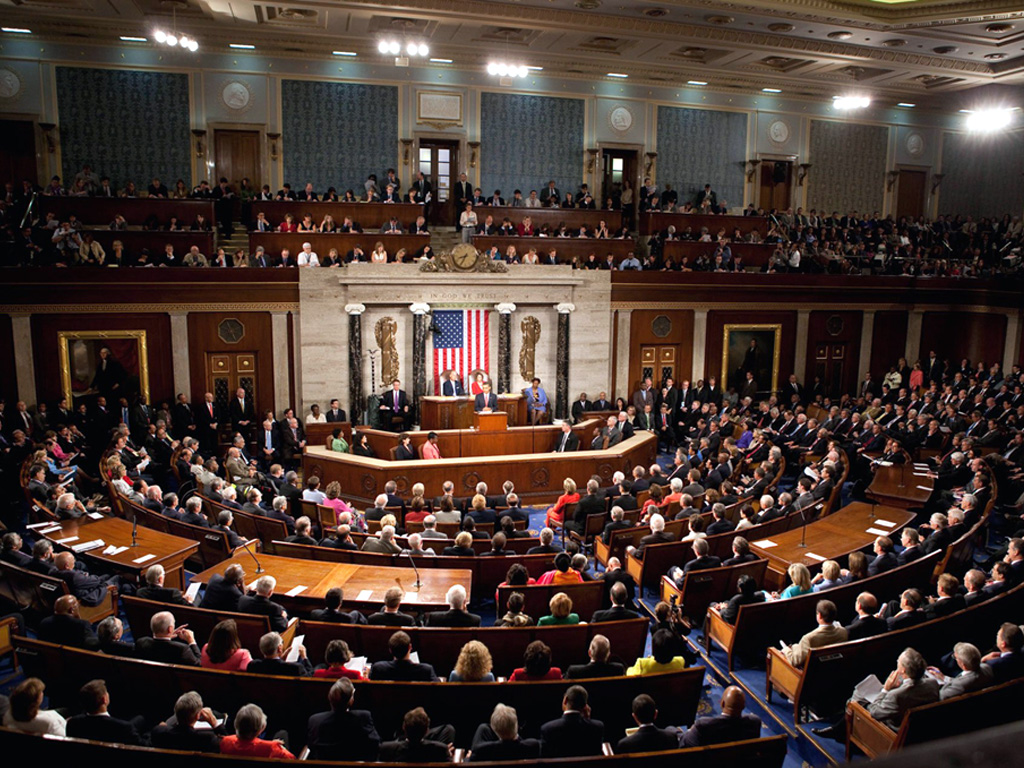Senate acquits Trump of abuse of power

The US Senate on Wednesday acquitted Donald Trump of abuse of power in his historic impeachment trial, the first of two charges brought against the Republican president that forced senators to vote on whether to remove him from office.
The businessman-turned-politician, 73, faced only the third presidential impeachment trial in US history - his turbulent presidency's darkest chapter - after being impeached by the Democratic-led House of Representatives on Dec. 18 on charges arising from his conduct toward Ukraine.
The Republican-controlled Senate voted 52-48 to acquit him of abuse of power stemming from his request that Ukraine investigate political rival Joe Biden, a contender for the Democratic nomination to face Trump in the Nov. 3 election. One Republican, Mitt Romney, joined the Democrats in voting for conviction. No Democrats voted for acquittal.
It then turned to a vote on whether to convict Trump of obstruction of Congress by blocking witnesses and documents sought by the House. The Senate is expected to acquit Trump on that charge as well. A conviction would elevate Vice President Mike Pence, another Republican, into the presidency.
Trump is aiming to pivot toward an election season that promises to further polarize the country.
A two-thirds majority in the 100-seat Senate is needed to remove him under the US Constitution. There are 53 Republican senators.
Romney, the 2012 Republican presidential nominee who has previously criticized Trump on other matters, called the president's actions in pressuring Ukraine to investigate Biden "grievously wrong" and said Trump was "guilty of an appalling abuse of public trust."
"What he did was not 'perfect,'" Romney said on the Senate floor, as Trump has described his call with Ukraine's president that was at the heart of the scandal. "No, it was a flagrant assault on our electoral rights, our national security and our fundamental values. Corrupting an election to keep one's self in office is perhaps the most abusive and destructive violation of one's oath of office that I can imagine."
Romney, a moderate and elder statesman in his party, paused during his speech as he became choked up with emotion.
"I am profoundly religious. My faith is at the heart of who I am," said Romney, a Mormon. "I take an oath before God as enormously consequential."
"The grave question the Constitution tasks senators to answer is whether the president committed an act so extreme and egregious that it rises to the level of a 'high crime and misdemeanor.' Yes, he did," Romney said.
"The president asked a foreign government to investigate his political rival. The president withheld vital military funds from that government to press it to do so. The president delayed funds for an American ally at war with Russian invaders."
Romney said he knew some fellow Republicans would strenuously disapprove of his decision and that he would be vehemently denounced. But he called his decision "an inescapable conviction that my oath before God demanded it of me."
'COUNTRY DESERVES BETTER'
As they did on Tuesday, senators ahead of the vote made a series of speeches explaining their decisions in the trial.
Democratic Senator Doug Jones, facing a tough re-election bid this year in Republican-dominated Alabama, said he would vote to convict Trump on both charges and voiced alarm at the arguments by the president's lawyers in favor of virtually unchecked presidential power.
"Our country deserves better than this. They deserve better from the president. They deserve better from the Congress. We must find a way to come together to set aside partisan differences and to focus on what we have in common as Americans," Jones said.
The impeachment charges against Trump centered on his request that Ukraine investigate Biden and his son Hunter Biden and the president's subsequent actions to block testimony and documents sought by the House in its impeachment investigation.
Democrats accused Trump of abusing his power by withholding $391 million in security aid passed by Congress to help Ukraine combat Russia-backed separatists as leverage to pressure Kiev to help him smear Biden, who is seeking his party's nomination to challenge Trump in November.
Trump denied wrongdoing and most Republicans in the House and Senate rallied around him.




















Comments
Comments are closed.